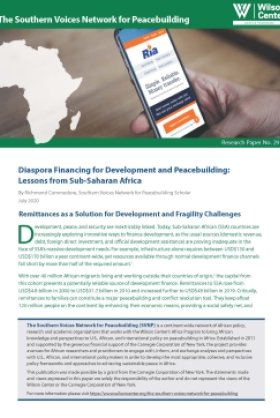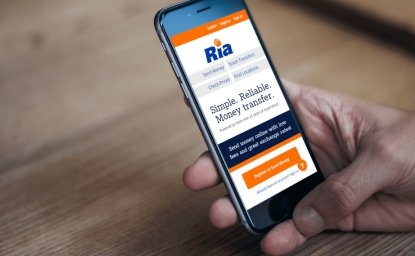Diaspora Financing for Development and Peacebuilding: Lessons from Sub-Saharan Africa


According to the African Development Bank (AfDB), African countries must invest USD$600-700 billion annually to meet the development needs of their growing populations. To achieve this investment goal, African governments are increasingly looking to the diaspora, amongst other measures. The African diaspora already contributes enormously to the continent’s economy through remittances: in 2018, Sub-Saharan Africa received an estimated USD$47 billion in remittances (World Bank). Looking beyond remittances, the diaspora community also possesses other resources including knowledge, expertise, and networks that could greatly benefit the financial, trade, and technology sectors—and be leveraged for peace—if properly engaged.
In this paired paper and policy brief, Southern Voices Network for Peacebuilding Scholar, Richmond Commodore, examines the current role of the African diaspora in economic development and peacebuilding efforts on the continent. Looking beyond remittances, he assesses the other financial tools that some African countries have used to attract and engage their diasporas in economic development, provides lessons learned from countries that have developed diaspora engagement strategies, and offers potential approaches for fostering more robust diaspora engagement. He also provides policy options and recommendations for how African governments, stakeholders, and international partners can better engage with and leverage the diaspora to help meet Africa’s development and peacebuilding needs.
The Southern Voices Network for Peacebuilding (SVNP) is a continent-wide network of African policy, research and academic organizations that works with the Wilson Center’s Africa Program to bring African knowledge and perspectives to U.S., African, and international policy on peacebuilding in Africa. Established in 2011 and supported by the generous financial support of the Carnegie Corporation of New York, the project provides avenues for African researchers and practitioners to engage with, inform, and exchange analyses and perspectives with U.S., African, and international policymakers in order to develop the most appropriate, cohesive, and inclusive policy frameworks and approaches to achieving sustainable peace in Africa.
Author

Research and Policy Analyst, African Center for Economic Transformation (ACET), Ghana

Africa Program
The Africa Program works to address the most critical issues facing Africa and US-Africa relations, build mutually beneficial US-Africa relations, and enhance knowledge and understanding about Africa in the United States. The Program achieves its mission through in-depth research and analyses, public discussion, working groups, and briefings that bring together policymakers, practitioners, and subject matter experts to analyze and offer practical options for tackling key challenges in Africa and in US-Africa relations. Read more




